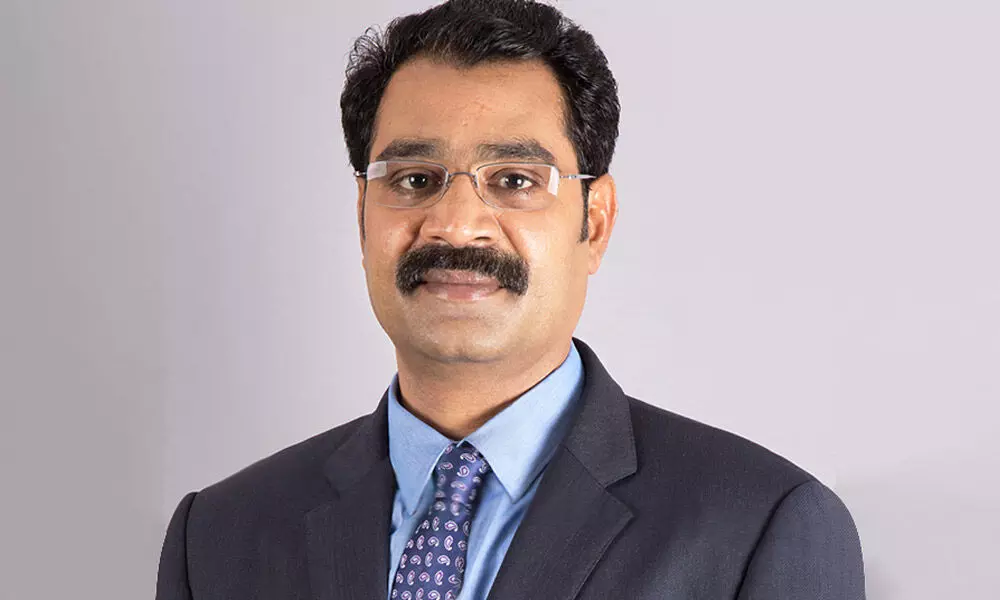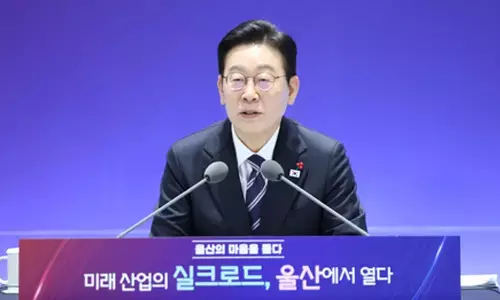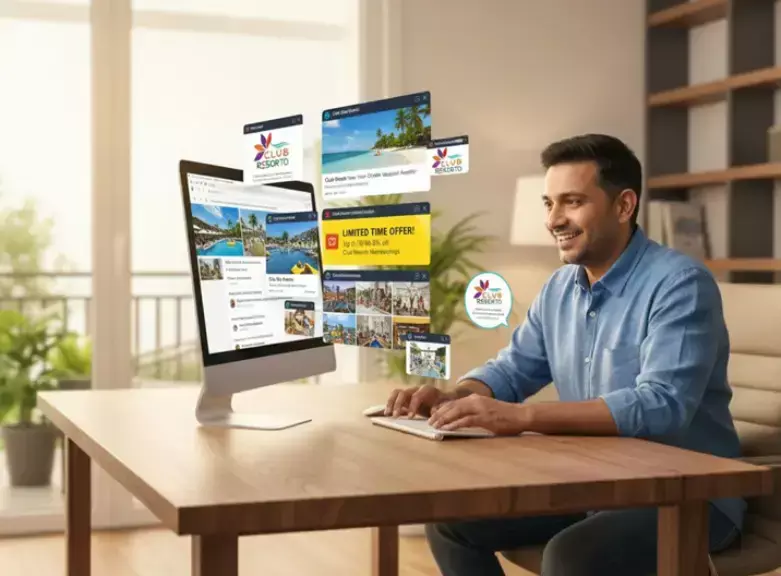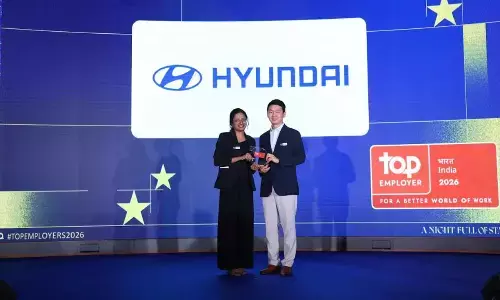We are going global with focus on US, Europe: Fluentgrid CEO

Murali Krishna Gannamani, MD & CEO, Fluentgrid Limited
We’re slowly transforming from a domain-centric company with power utility focus into Actilligence platform-driven company
Fluentgrid Limited, an energy utility and city ICT solutions company with industry standard software products, is spearheading IT modernisation with a resilient ecosystem by enabling development of smart cities. It is striving for seamless digital transformation of utilities and cities for a sustainable future. Founded in Visakhapatnam in 1998, the company's MD and CEO Murali Krishna Gannamani in an exclusive interview to Bizz Buzz said they are proud to be facilitating the global movement towards smart grids and smarter cities for a sustainable future through seamless digital transformation of utilities and cities for a life with a high happiness index
Tell us something about your journey and how you started Fluentgrid. Which domains do you serve?
Immediately after my college, I joined my family's steel business where electricity used to be our key input. And you know those days of huge electricity demand supply gap, unscheduled power cuts, captive power generation, etc., which got me thinking. I started to dig deeper and came to know of the distressed state of electricity boards and became aware of the reasons behind their state of affairs including their lack of consumer data inventory, lapses in metering, billing and collection processes resulting in huge losses, because of which they are unable to invest in additional generation capacity, while the demand was steadily climbing.
It appeared that adoption of IT applications to streamline their commercial business processes is the key to their revival. Mature power utility billing software products were not available in India. Foreign software products were not suitable for our needs and had to be customised and hence very expensive, which the loss making utilities could not afford.
Around the same time, Indian government was introducing electricity sector reforms and Andhra Pradesh was one of the States where the erstwhile electricity board was unbundled into generation, transmission and distribution companies by roping in global consultants. And there was talk of infusing technology to transform distribution business processes.
That was my calling. I didn't just see an opportunity there, but I felt like I should do it from deep within. Since then we have been building great software products and solutions for power distribution utilities (also known as DISCOMs in India). Our software products span most of the core utility business functions including customer acquisition, metering, billing, payments, customer care, smart metering, smart grids, enterprise analytics and so on. Our products and solutions are implemented for electricity consumers in more than 15 states in India, and 10 countries outside.
We also ventured into smart cities where we offer city command and control center and urban governance solutions leveraging our next generation IoT and analytics platform Actilligence.
What are the challenges you have faced throughout this journey and how do you think Visakhapatnam can emerge as a prominent IT hub?
Abundant availability of right talent is the key requirement for any IT company, especially for software product companies like us. Since there aren't enough IT companies in Vizag, it was quite difficult to attract and retain good talent. Our approach was to hire local talent and train them to serve our needs. That worked well and we have scores of associates who have been with us for more than 10 years including those who have been with us right from inception, more than 20 years ago.
Another challenge is the connectivity. When we started, our only connectivity with the outside world was a couple of flights connecting to Chennai/Delhi and a few trains connecting us to Hyderabad, Chennai and Kolkata. Even Internet connectivity wasn't that great when compared to other popular IT destinations. I still remember those lost opportunities where we couldn't submit our bids in time. To overcome this problem, we had to open a branch office in Hyderabad and move the entire sales and marketing team there. That has been serving us well.
Are you planning to expand your operations? If yes, any new business vertical that you are planning to foray into?
We are slowly moving from a domain centric company with power utility focus into a platform driven company with our Actilligence platform. Our IoT and analytics platform is capable of integrating with a multitude of business applications and smart devices to realize an integrated operations center for any business domain offering real time situational awareness, extract actionable intelligence leveraging AI and ML and facilitating incident resolution through automated standard operating procedures (SOPs). We have already signed several projects and are negotiating with others in the areas of thermal power generation, oil refining, airports, etc.
What made you start your company in Visakhapatnam? Please explain how you could transform Fluentgrid into a global company?
As any other Vizagite I believed in the notion of Vizag being the City of Destiny. It had everything going for it to become an alternative destination for IT. If not for connectivity issues, I believe it would have made it.
We invested heavily into building software products for power utilities. Unlike other IT companies of those days who were content with delivering force-fit foreign software products, we were intent on developing these products ground up suiting their business needs, which gave us an edge over others. With our own software products and the value we were able to deliver as a one-stop-shop, we were able to differentiate ourselves in global bids and won several nationwide projects in Asia, Africa and Europe.
Do you face any problem with regard to availability of skilled manpower-a reason being pointed out as a dampening factor by many investors in the field of IT?
Yes, especially in Visakhapatnam. And we had to take the difficult route of hiring youngsters and training them which is a bit of a time taking and expensive process, but there are several advantages to that as well; like for example we get to train them and mould them to our specific needs and so on.
How do you train and retain your employees? What are the measures you take in rewarding loyal employees to ensure a high retention rate?
Every fresh hire goes through a systematic training program, post which he/she is associated with a team and a mentor who takes responsibility for integrating him/her into the organizational fabric to become productive and also show them a path for progressing their career depending on their strengths and aspirations.
While performance appraisals take care of career progression and course correction, they are continuously appreciated and rewarded for their good work and appropriately guided by their mentors if they are slipping.
And most importantly we work on smart utility and smart city projects which directly impact customer businesses and in turn the citizens offering them a good quality life. This in itself is a big reward for all of us working in this space, which keeps us together.
What are your plans to take your company to the next level?
Having proved ourselves in India and emerging markets, our next target is to reach our target customers in North America, Europe and Australia. We have the business plan ready and we will be taking some initial steps in this direction during this year.
Do you think Atmanirbhar Bharath can benefit entrepreneurs in achieving their goals?
Yes indeed, the intent is good. But, we didn't see much in terms of compliance by public-sector organizations like power utilities and smart cities who happen to be our major customers.
Having seen IT growth for such a long time, which technologies do you think will be the most sought after in the next five years?
Anything to do with data will be in vogue for the next five years; starting with data generation using sensors, data acquisition using IoT, data processing using ETL and similar tools, data storage, data analysis using AI/ML, data visualisation and so on. As every human and things will start generating more and more data, which will be used to monitor them and deliver services needed by them, these data related technologies will be the core skills required going forward.
What is your message to those establishing startups to become successful entrepreneurs?
Find a niche and persevere to excel in that niche against all odds. It worked for me and I am sure it is relevant even today.
















